Natesh's Search for Meaning
An interview with someone I met on my recent travels in honor of Holocaust Remembrance Day.
Tomorrow is International Holocaust Remembrance Day. I’ve wanted to interview a Holocaust survivor on the Drop, but until I have the connections to do so (Please hook a writer up!), a personal story with an interview of someone I met on my travels will have to suffice. I hope his story inspires you to always learn, expand your worldview, educate others, speak your truth, and carry on the legacy of the six million Jews who perished at the hands of evil.
A few weeks ago I posted about my Jewish experience in Copenhagen, but didn’t mention my visit to Oslo. I didn’t have any planned Jewish experiences there, but oftentimes the best experiences are the ones that come as a surprise.
I booked a one-night stay in a mixed-gender room in a hostel because I’m a cheap risk taker. When I first walked in and settled into my bottom bunk, I started chatting up the young man in the bunk above me (Note: saying ‘young man’ definitely affirms my belief that I’m getting too old to stay in hostels.)
I broke the ice by saying to him, “Hi, I'm Miranda! I’ll be sleeping underneath you tonight!”
As we exchanged travel stories, I couldn’t help but notice a copy of The Diary of Anne Frank sitting in his bunk. Oooh, how to approach this with a stranger who has easy access to murder me in the night?
“So, what do you think?” I asked during a pause in conversation and pointed to the book. That’s a completely normal question to ask about a teenage girl who died in the Holocaust, right? I guess if I didn’t like his answer I could take my suitcase right out of there and request to switch rooms.
My bunkmate, whose name was Natesh, explained how it was his first time reading it. He started the book because of his fascination with the Holocaust and his desire to learn more about it. Naturally, I told him I’m Jewish, and the more we talked about the topic, the more my worries subsided.
He told me about how he moved to Germany, visited concentration camps, and is having conversations with friends from back home on the topic. I joked he was more Jewish than I am, but really I was impressed by Natesh’s curiosity and quest for knowledge.
Thanks to the internet, Natesh and I stayed in touch, and his story instantly came to mind when I started thinking about what I was going to write for Holocaust Remembrance Day. Here’s an interview with him, which he so graciously did when he was flying back home to Delhi for his cousin’s wedding (which he invited me to - major missed opportunity on my part!). Natesh, I’m so grateful to have met you! I hope to have you at my Shabbat table one day.
Where are you from and where do you live now?
I was born and brought up in the capital city named Jammu in the northernmost state of India called Jammu and Kashmir. Currently, I am residing in Munich, Germany.
How did you get interested in learning about the Holocaust?
I like to read about history, and WWII is one of the biggest historical events that has happened in modern-day history. I also believe it is very important to know the past wrongdoings committed by humans and to learn from them so knowing history makes sense to me. I had heard about the term “Holocaust” but came to understand it when my friend suggested the book Man’s Search for Meaning. It was written by an Austrian psychiatrist Viktor E. Frankl chronicling his life as a prisoner in concentration camps - one of them being Auschwitz - and life after freedom. I was quite shocked to learn about the atrocities committed against people just because they belonged to a certain religious group and it piqued my interest towards this topic.
How did you end up in Germany?
I got relocated to Germany for a temporary work assignment by my company for a year. Being in Europe and already knowing about the camps, I had already decided to visit at least one of them during my stay here to witness firsthand the heinous crimes committed as I had read about them. I visited Dachau (very close to Munich and the first concentration camp built by the Nazis) and Auschwitz-Birkenau in Krakow, Poland, as I knew about it already while reading about the Holocaust and also from the book.
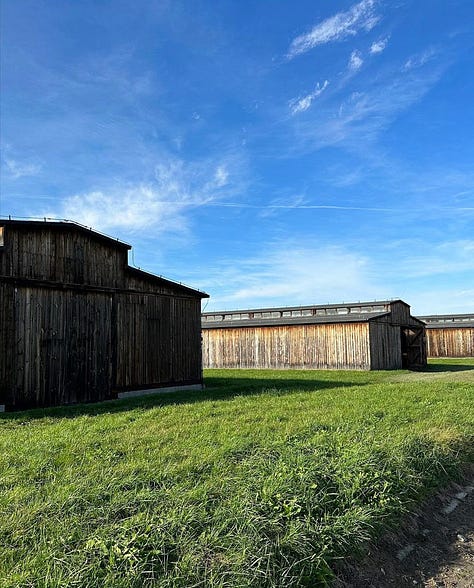
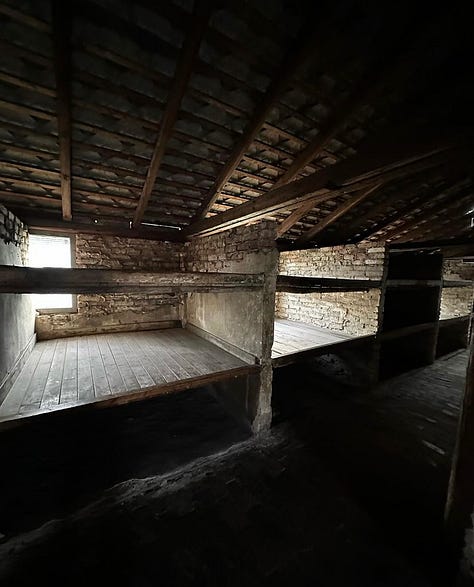
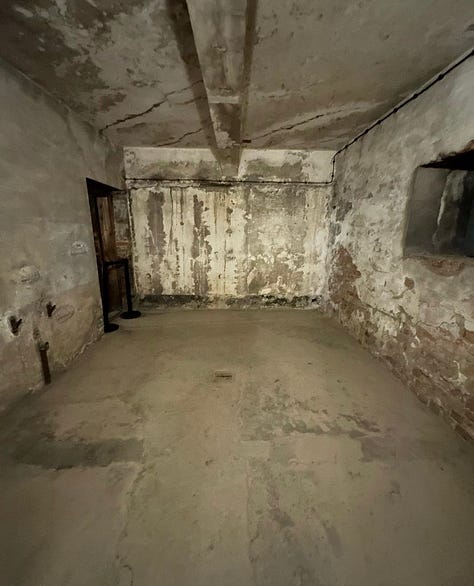
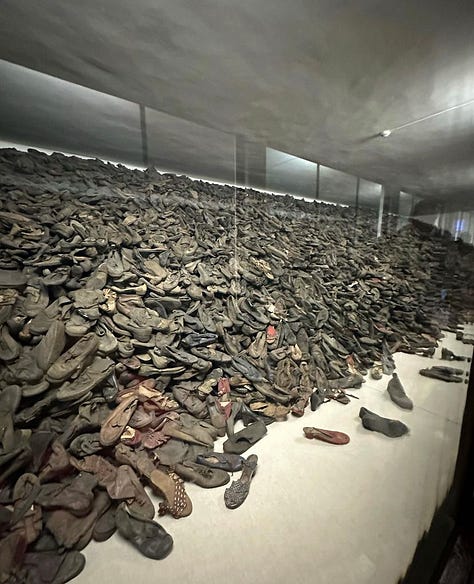
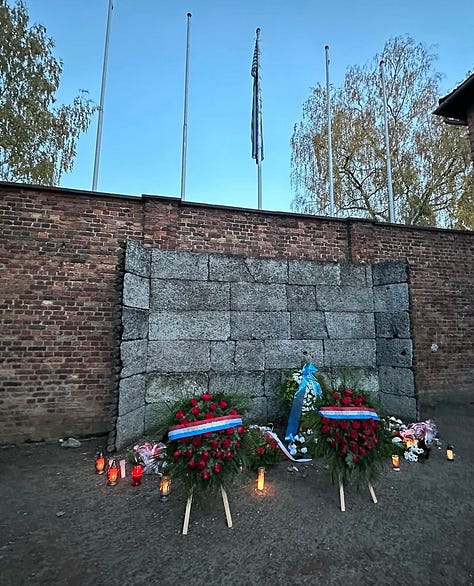
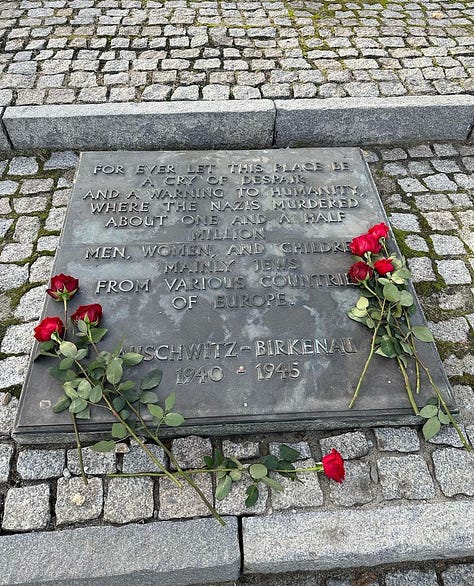
What was your reaction while reading The Diary of Anne Frank?
I came to know about Anne Frank while visiting Auschwitz-Birkenau camp where they had a section of Jews in the Netherlands. It was quite shocking as well as amazing to know that people were living in hiding for years to escape persecution. Reading through the book, you wonder how basic things which we take for granted in modern day were a luxury for people living in hiding. The struggle of Anne Frank’s family and many such others in the annex gives a small glimpses of what people (Jews in particular) had to go through just to barely live. It is also a sad truth that countless girls like Anne Frank faced persecution during the war and never got to tell their story. I would highly recommend this book not just to know about live of Jews during the war but it also inculcates why we should be grateful every day for the life we have and to be more empathetic towards others.
During these days of increased antisemitism and lack of Holocaust education, what would you say to someone who may not know about these issues?
Well it is quite unfortunate that there are people who still don’t believe the Holocaust happened, but it is not shocking to me since my own community (Kashmiri Pandits) have experienced genocide and ethnic cleansing, and there is always some faction who tries to deny it. We should look up to Germany as an example for this as they have made it mandatory in their schooling to teach students about the atrocities committed by Nazi Germany and the things that followed after. I also believe they make the students visit a concentration camp once during their schooling. Moreover, we are fortunate that these concentration camps have been preserved as they serve as direct evidence of how low a human can stoop down to.
Also to people who don’t believe in Holocaust, I remember a quote just outside of the Birkenau camp: ”Never remain indifferent. Indifference kills.” During WWII, it was Jews and other minorities. Next time it can be you. We need more empathy and kindness, especially nowadays. The only way to know about these things is to read about them and to educate yourself. There is already an abundance of books and movies made on this event so one just needs to go through it.
HOPE - Humanity our Priority on Earth
Thanks for considering me to a part of your story,
Natesh
Interested in this topic? Check out these similar Drops:
- Studying the Shoah: An Educational Series (featuring my dad!)
- A Torah in Tallinn: My Trip to Jewish Estonia
DON’T FORGET: The Shabbat Drop Book Club begins THIS Sunday on Zoom. You don’t want to miss out. We’ll be discussing Here All Along by Sarah Hurwitz. It’s sold out on Eventbrite so just give me your email address to get the Zoom link on Sunday.
Shabbat Shalom,

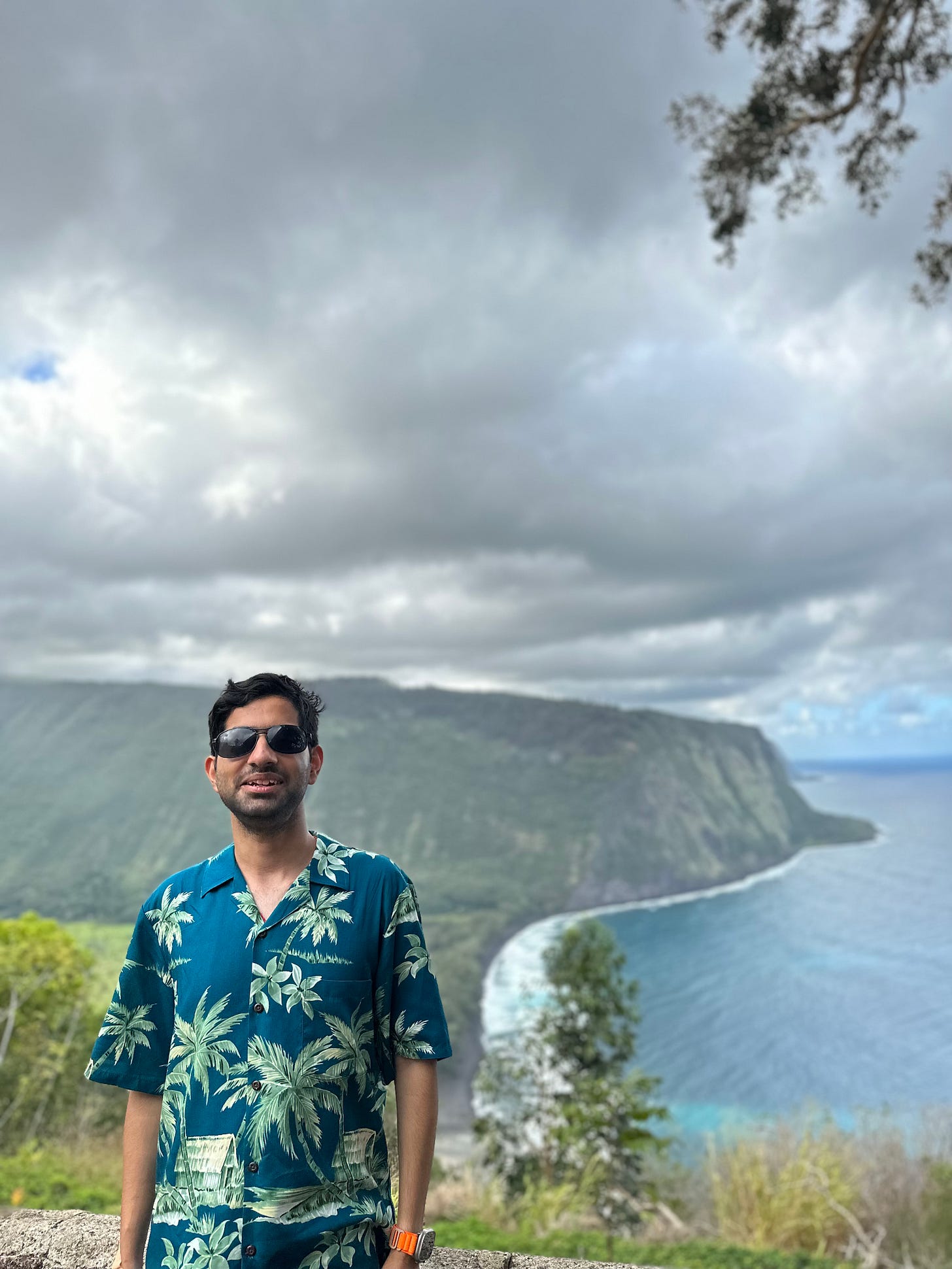

You have the gift of reaching out to people, making friends and learning from those friendships. This a good example of that gift. It is odd but very encouraging to find a young person, not Jewish, from India, so curious about the Holocaust. It reminds us that there is still lots of good people in this world, and that we should seek them out and share their views.
As always, a lovely read. And I love that your voice always comes out in your writing. Good shabbos 🪬